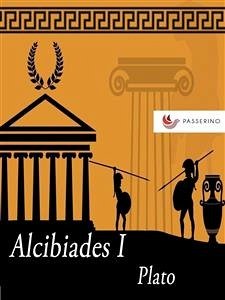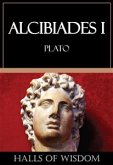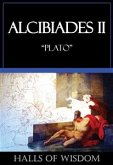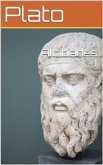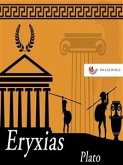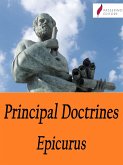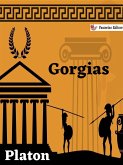The First Alcibiades or Alcibiades I is a dialogue featuring Alcibiades in conversation with Socrates. It is ascribed to Plato, although scholars are divided on the question of its authenticity.
Alcibiades, who is described as a very young man, is about to enter on public life, having an inordinate opinion of himself, and an extravagant ambition. Socrates, 'who knows what is in man,' astonishes him by a revelation of his designs. But has he the knowledge which is necessary for carrying them out? He is going to persuade the Athenians—about what?
Not about any particular art, but about politics—when to fight and when to make peace.
Now, men should fight and make peace on just grounds, and therefore the question of justice and injustice must enter into peace and war; and he who advises the Athenians must know the difference between them. Does Alcibiades know? If he does, he must either have been taught by some master, or he must have discovered the nature of them himself. If he has had a master, Socrates would like to be informed who he is, that he may go and learn of him also. Alcibiades admits that he has never learned. Then has he enquired for himself? He may have, if he was ever aware of a time when he was ignorant. But he never was ignorant; for when he played with other boys at dice, he charged them with cheating, and this implied a knowledge of just and unjust. According to his own explanation, he had learned of the multitude. Why, he asks, should he not learn of them the nature of justice, as he has learned the Greek language of them? To this Socrates answers, that they can teach Greek, but they cannot teach justice; for they are agreed about the one, but they are not agreed about the other: and therefore Alcibiades, who has admitted that if he knows he must either have learned from a master or have discovered for himself the nature of justice, is convicted out of his own mouth.
Plato (428/427 or 424/423 – 348/347 BC) was a philosopher in Classical Greece and the founder of the Academy in Athens, the first institution of higher learning in the Western world.
Translated by Benjamin Jowett.
Alcibiades, who is described as a very young man, is about to enter on public life, having an inordinate opinion of himself, and an extravagant ambition. Socrates, 'who knows what is in man,' astonishes him by a revelation of his designs. But has he the knowledge which is necessary for carrying them out? He is going to persuade the Athenians—about what?
Not about any particular art, but about politics—when to fight and when to make peace.
Now, men should fight and make peace on just grounds, and therefore the question of justice and injustice must enter into peace and war; and he who advises the Athenians must know the difference between them. Does Alcibiades know? If he does, he must either have been taught by some master, or he must have discovered the nature of them himself. If he has had a master, Socrates would like to be informed who he is, that he may go and learn of him also. Alcibiades admits that he has never learned. Then has he enquired for himself? He may have, if he was ever aware of a time when he was ignorant. But he never was ignorant; for when he played with other boys at dice, he charged them with cheating, and this implied a knowledge of just and unjust. According to his own explanation, he had learned of the multitude. Why, he asks, should he not learn of them the nature of justice, as he has learned the Greek language of them? To this Socrates answers, that they can teach Greek, but they cannot teach justice; for they are agreed about the one, but they are not agreed about the other: and therefore Alcibiades, who has admitted that if he knows he must either have learned from a master or have discovered for himself the nature of justice, is convicted out of his own mouth.
Plato (428/427 or 424/423 – 348/347 BC) was a philosopher in Classical Greece and the founder of the Academy in Athens, the first institution of higher learning in the Western world.
Translated by Benjamin Jowett.

